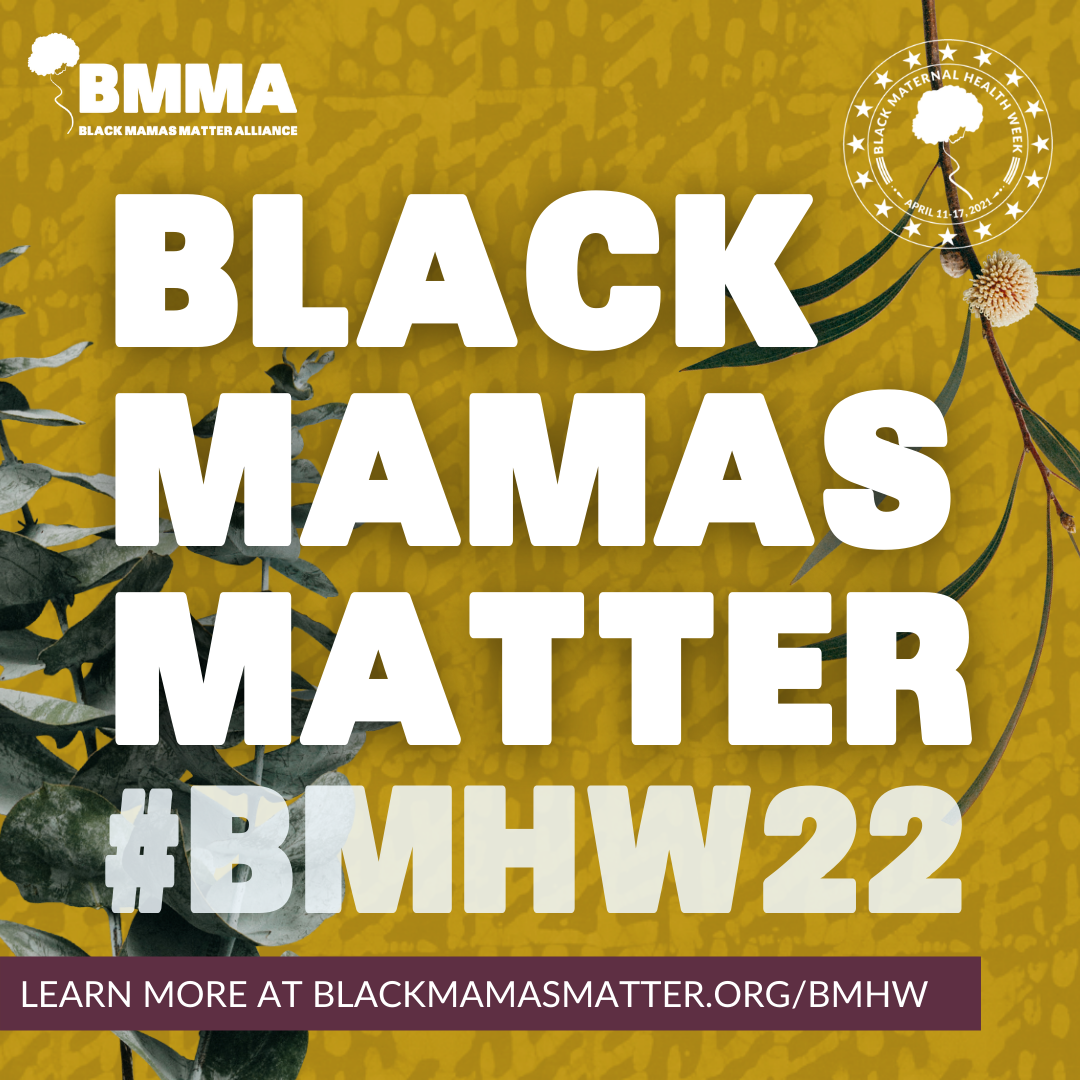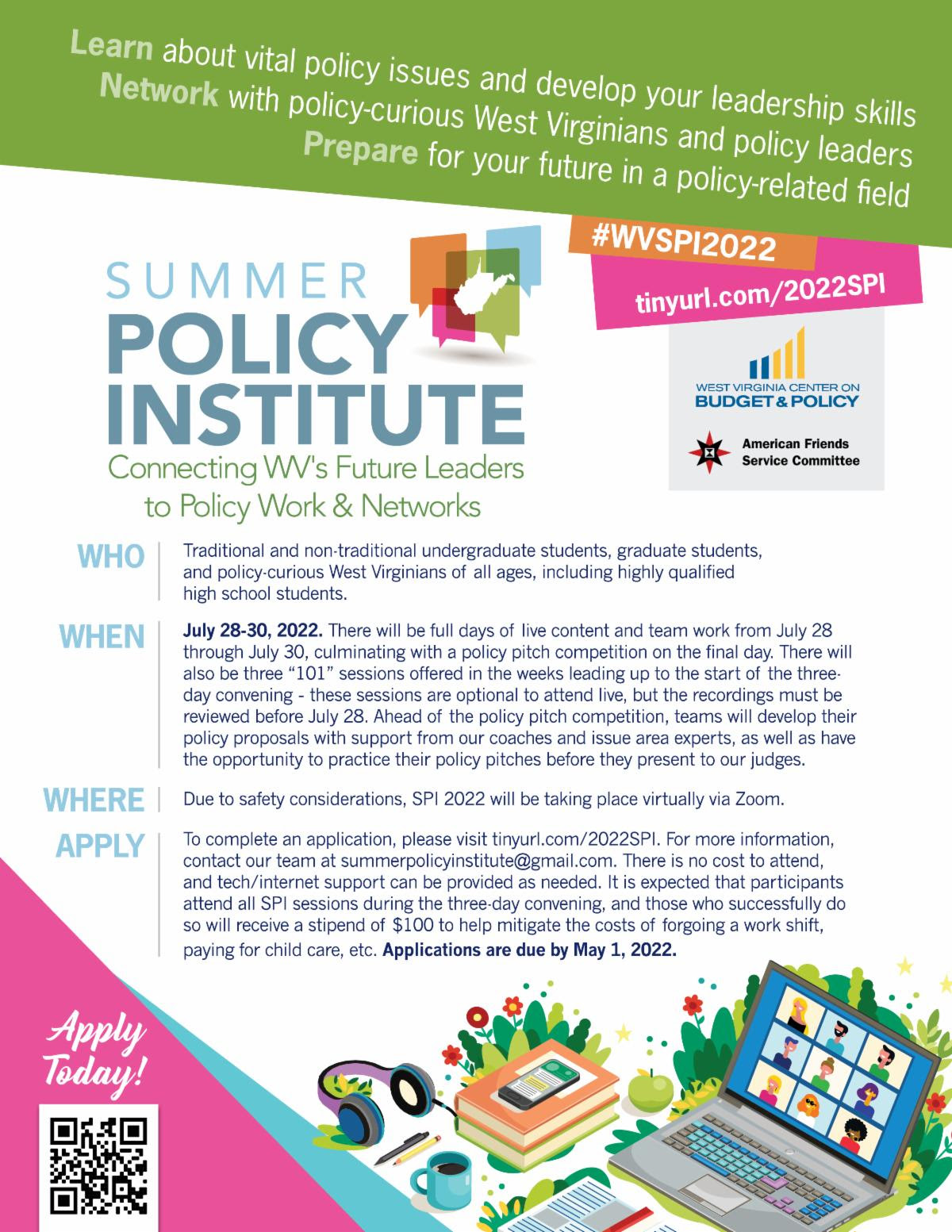With Tax Day just around the corner and West Virginians across the state filing their taxes, it’s a great time to remember what our contributions pay for and why it is important that we create a tax system that is equitable, transparent, and provides adequate resources to fund the public services and investments that allow our communities to thrive.
At the local, state, and federal levels, tax dollars are pooled together and invested in the public services that are essential to building shared prosperity. Taxes enable governments to make critical investments in our communities that we cannot make as individuals.
In West Virginia, our tax dollars allow us to invest in fundamental areas including:
The existence of all of these public services makes clear why taxes matter, and why any tax reform should be done cautiously and with care not to undermine important public investments or make the system less equitable. Shifting from income taxes to sales taxes or cutting taxes on out-of-state corporations (again) and energy producers are not good tax reforms. Not only would these changes make the tax system even more reliant on middle- and low-income families, they would also leave us with less revenue to invest in building a strong and prosperous state that works for everyone. We all benefit from the services and investments made possible by taxes, and with them we can make West Virginia a better place to live, work, and raise a family.
Read Sean’s full blog post.
 |
During the 2022 West Virginia legislative session, several attempts were made to curtail access to abortion services in the Mountain State. Of these, just one passed. SB 468 prohibits abortions if a person indicates that they seek termination of their pregnancy because the fetus has a disability. What’s more, Roe v. Wade – the landmark Supreme Court decision protecting the right to abortion without excessive government regulation – is predicted to be overturned this summer.
Access to safe and legal abortion services is an economic security issue, and if these services are restricted, poor and otherwise marginalized communities will suffer the most. A recent article provides more details. Excerpt below:
West Virginia is one of nine states that has pre-Roe legislation in place, meaning if Roe is overturned, the law could be restored and all abortions would be banned statewide.
The Guttmacher Institute found that limiting abortion access disproportionately impacts low-income individuals. Pomponio contended this would be particularly harmful in West Virginia, which already has a high poverty rate. According to a 2020 report by the West Virginia Center on Budget and Policy, the state had a poverty rate of 16 percent, 3.7 percent higher than the national average. Women who live in rural communities also have a higher maternal mortality rate than those who live in urban areas due to decreased access to health care, a United Health Foundation report found. About 64 percent of West Virginians live in rural areas, according to state data.
“The reasons women give for having an abortion underscore their understanding of the economic impact unplanned childbearing would have on themselves and their families,” the Guttmacher Institute report said. “Most abortion patients say that they cannot afford a child or another child, and most say that having a baby would interfere with their work, school or ability to care for their other children.”
Read the full article.

April 11-17 marks the fifth anniversary of Black Maternal Health Week!
Founded by the Black Mamas Matter Alliance, this campaign seeks to:
Learn more about the campaign and actions you can take through the remainder of this week here.

As the ongoing pandemic and recent inflation continues to exacerbate financial hardship around the country, senior services providers and advocates urged West Virginia lawmakers to allocate more funding for senior centers across the state to meet rising food assistance needs. Unfortunately, their requests did not lead to legislative action during the 2022 regular session. A recent article includes further details. Excerpt below:
It’s always been challenging for seniors, many of whom rely on benefits like Social Security, to afford food and the gas it takes to get to the store. Statewide, nearly one in 10 seniors struggles to get enough food; those with disabilities or raising grandkids are more likely to go hungry.
Then, the pandemic hit, pushing more than 3,000 new seniors to seek food from senior centers. And now, as consumer prices have risen 7.9% in the last 12 months (a 40-year high), the problem is even more acute. Despite a push to convince lawmakers to funnel more money to centers to help feed more seniors, lawmakers declined to do so. Now, counties are left to grapple with how to feed more and more seniors in need amid record-high food prices.
“In my opinion, the biggest challenges facing West Virginia seniors right now are the escalating costs of the bare necessities to sustain an acceptable quality of life,” said Robert Roswall, commissioner of the state’s Bureau for Senior Services.
West Virginia’s senior centers, which operate as nonprofits, are funded by a mix of federal, state and local funding. The state funding runs through the West Virginia Bureau of Senior Services. Jennifer Brown from Wyoming County, who now serves as president of the Directors of Seniors and Community Services, said the group contacted both state lawmakers and the bureau to ask for an increase in funding for their nutrition programs.
The funding increase never happened.
Read the full article.

The Summer Policy Institute (SPI) is an annual convening hosted by the WVCBP and the American Friends Service Committee that brings together highly qualified traditional and non-traditional undergraduate students, graduate students, and policy-curious people of all ages to build policy knowledge, leadership skills, and networks.
Attendees participate in interactive sessions where they learn the basics of data, policy, and state government and build their organizing and advocacy skills. Throughout the institute, participants work in small groups to identify and develop policy proposals to shape the future they want to see in West Virginia, culminating in team “policy pitches” to state legislators and policy professionals. Many SPI attendees have gone on to continue advocating for their policy idea and to hold internships with West Virginia non-profits and in state government.
This year’s SPI theme is “Growing a West Virginia that Works for Everyone.”
Due to ongoing public health considerations, SPI 2022 will take place virtually via Zoom from July 28-30. Find further details and instructions to apply in the flyer below and on our event landing page here. There is no cost to attend. Please don’t hesitate to reach out to our team at summerpolicyinstitute@gmail.com with any questions.
We will be accepting applications through May 1. People of all ages are welcome to apply, so please feel free to share with any folks you think may be interested!

Since July 2021, most households with children had received monthly enhanced Child Tax Credit payments of $250- 300 per child. However, the enhanced Child Tax Credit was temporary and expired at the end of 2021 unless Congress acts to extend it in 2022 through the Build Back Better Act or other legislation.
The impact on children and families since the expiration of the enhanced Child Tax Credit has been severe. Between Dec. 2021 and Jan. 2022, there was a staggering 41 percent increase in child poverty nationwide due to the loss of the monthly payments. And as inflation continues to exacerbate family financial hardship, the need to make the enhanced Child Tax Credit permanent is as urgent as ever.
If you received monthly Child Tax Credit payments, we’d love to hear how they had been helping your family and how your family has been impacted now that the payments have (at least temporarily) expired.
Join us in our advocacy by completing our survey here or participating in the #Unbearable Child Tax Credit campaign.
Learn more about what’s at stake if the enhanced Child Tax Credit is not extended in our blog post here.
Find guidance on how to collect your Child Tax Credit payment here.

The WVCBP’s Elevating the Medicaid Enrollment Experience (EMEE) Voices Project seeks to collect stories from West Virginians who have struggled to access Medicaid across the state. Being conducted in partnership with West Virginians for Affordable Health Care, EMEE Voices will gather insight to inform which Medicaid barriers are most pertinent to West Virginians, specifically people of color.
Do you have a Medicaid experience to share? We’d appreciate your insight. Just fill out the contact form on this webpage and we’ll reach out to you soon. We look forward to learning from you!
You can watch WVCBP’s health policy analyst Rhonda Rogombé and West Virginians for Affordable Health Care’s Mariah Plante further break down the project and its goals in this FB Live.
